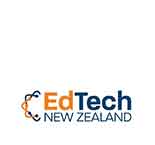Ngā mihi reader,
It has been a busy three weeks with four diversity and inclusion events, the last of which is tonight in Christchurch.
EdTechNZ has collaborated with TechWomen to take the topic of diversity on the road. I want to acknowledge Eva Sherwood for curating the panels and the great job she has done of moderating the events.
The events were all remarkable. I’m not big on superlatives but remarkable is the right word. The quality of the panelists, speakers and attendees was great. It’s rare that I get to the end of an event and not want it to end, but these events have been an exception!
Our panelists weren’t just diverse in the demographics they represent, they also brought a diverse set of views, perspectives and engaging personal stories, and they challenged each other and provided insightful and lateral perspectives for our audiences. Special thanks to all of our panelists and to our sponsors for providing venues and catering: Deloitte in Wellington, Clearpoint Innovation Garage in Auckland and Jade Software in Christchurch.
In the middle of this, I also got to attend a neurodiversity workshop led by the awesome Rich Rowley and Vivek Kumar, and graciously hosted by Simpson Grierson.
These four events have helped reshape my thinking and I’m better for it – not bad from someone who is male, pale and stale! ?
The diversity conversation is important for any number of reasons. I constantly hear that we have a skills shortage in New Zealand and I personally get to see that within the tech sector. The question regularly asked is how can ‘we’ collectively solve the problem. I suggest that the answer is right under our noses. Diversity has so many dimensions and includes things such as life experiences and personality types, as well as race, socio-economic status, religion, gender, sexual orientation, disability and more. If we look at the numbers then what we see is poor representation and inclusion across most of these categories. Women account for about 50 percent of our population yet account for only 30 percent of the tech sector, at best. Maori and Pasifika account for 22 percent of the workforce, but comprise only one percent of the tech workforce. Twenty-four percent of Kiwis identify as having some sort of disability, yet employment sits at a little over 22 percent, compared with 70 percent for non-disabled people. Even with the 7,000 or so tertiary graduates with some sort of disability, a year on from their graduation about half of them remain unemployed. The statistics don’t lie, industry needs to rethink how we recruit, how to be more inclusive and we need to take a long term view and invest in all people.
Diversity and inclusion isn’t just about it being the ‘right thing’ to do, it’s also the smart thing to do! How can you best serve your diverse customers if your organisation doesn’t understand them? Global statistics show that diverse and inclusive companies significantly outperform their competitors and they are 70 percent more likely to be innovation leaders. They are also better decision makers, have higher job acceptance and outperform industry norms.
It’s worthwhile checking out the MYOB study about gender bias and diversity issues in the tech sector.
In other EdTech news:
Are you an EdTech company who wants to raise your profile on the global stage? Check out EdTech 1000. EdTech Digest (whom I personally follow) have developed a running compendium of EdTech companies serving the education sector to highlight leading innovative technology solution providers intent on transforming education. If you want to be included on the EdTech 1000, get your submissions in before 10 September.
The first of the spotlight speakers for the uLearn19 conference (9-11 October in Rotorua) have been announced. This is widely considered to be the best New Zealand education conference and EdTechNZ are official supporters.
The Ministry of Education has recently released their latest findings around Kōrero Mātauranga, a summary of the voices of young people. There are four questions and some great responses from a very wise younger generation!
Finally, Education New Zealand has recently released NauMai NZ which is the official government site for international students who will soon arrive, or are currently studying, in New Zealand.
Haere rā
Shane Kerr
Chair
EVENTS AND NEWS
OMGTech! Founder Vaughan Fergusson has rebooted an outdoor education camp in Raglan to help steer kids into tech careers.
“It’s vitally important our kids understand how technology works and can become the innovators of it, not the consumers of it,” said Fergusson.
Listen to the EdSurge podcast which asks can work be dignified in an automated world?
A new report from Nesta reviews EdTech Testbeds as models for improving evidence.
Applications for the Callaghan Innovation R&D Experience Grants are open until 31 August. The programme funds a 10 week internship for undergraduate or postgraduate students during the summer break.
Be among the first to meet dynamic founders who are fuelling our startup ecosystem. Attend Massey’s ecentre Innovation Showcase 2019 on 8 August in Auckland.
Does a curtain need to be put in place to ensure that women get the same opportunities as their male colleagues?
The UK Government has announced£18.5 million to fund artificial intelligence conversion degrees and to drive innovation in adult online learning.
Come along to the EdTech Wellington Meetup on 11 July to hear educational researcher Rachel Bolstad talk about her recently concluded ‘Games for Learning’ research project.
Entries open in July for the Grow Waitaha Canterbury DigiAwards 2019. The DigiAwards enables primary and intermediate students from throughout the South Island to design, develop and showcase their digital outcomes.
Registrations are now open for the Canterbury Tech Summit.
Have you been forwarded this newsletter?
Simply subscribe here for your own copy.








